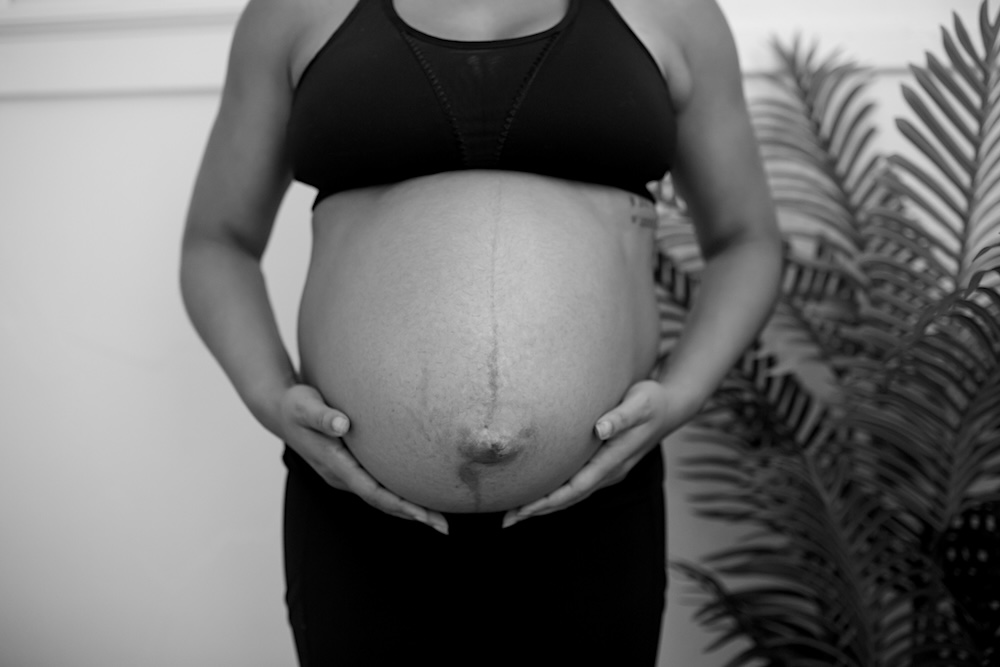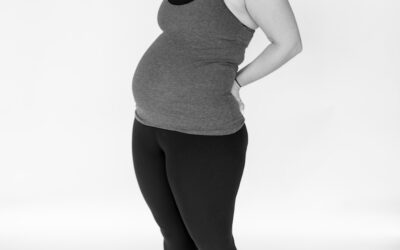In a calm hospital room, still buzzing with energy, a new mother cradles her newborn, her face a mix of joy and exhaustion. This scene, repeated countless times across the country, should be a moment of pure celebration. Yet for many Black women in the United States, it’s overshadowed by disproportionate risks they face throughout pregnancy, while giving birth, and into the postpartum period. Let’s talk about the Black maternal health crisis.
The Black maternal health crisis isn’t just a statistic — it’s a lived experience that affects families, communities, and the very fabric of our society. Keep reading to better understand the scope of this crisis, some of the root causes, and the efforts being made to address it.
Understanding the scope of black maternal health disparities
The Black maternal health crisis in the United States is a pressing issue. Here are some of the key statistics that paint a frustrating picture of its severity:
- Black women are approximately three times more likely to die from pregnancy-related complications than white women.1
- More than 80% of pregnancy-related deaths are preventable.2
- Maternal death rates in abortion-restricted states are 62% higher than in states with abortion access, disproportionately affecting Black women.1
These disparities exist across the care continuum and socioeconomic levels:
- Black women experience higher rates of preterm births, low birthweight infants, and late or no prenatal care.3
- About one in five Black women report symptoms of perinatal depression, nearly double the rate of white women.3
- Black women with college degrees have higher pregnancy-related mortality rates compared to white women with less than a high school diploma.4
The root causes of the Black maternal health crisis
The Black maternal health crisis is complex, with many interconnected factors that are contributing to its persistence.
#1 Structural racism and social determinants of health
Systemic racism perpetuates health disparities through:
- Barriers to accessing quality healthcare facilities because of things like historic redlining practices.5
- Higher rates of poverty and associated stressors.5
- Chronic stress from ongoing racial discrimination.5
These factors directly impact maternal health outcomes by limiting access to resources that support healthy pregnancies. For example, delays in prenatal care can exacerbate undiagnosed or poorly managed health conditions during pregnancy.
#2 Healthcare system biases
Implicit bias and discrimination within healthcare significantly impact Black women’s experiences. For example Black patients are more likely to report mistreatment during pregnancy and childbirth6 and provider discrimination can lead to delayed or inadequate care.7
Plus, a lack of cultural competence among healthcare providers results in miscommunication and suboptimal care.5
#3 Limited access to comprehensive care
Many Black women face barriers to accessing comprehensive maternal healthcare. For example, they are often faced with inadequate insurance coverage, particularly in states with restricted Medicaid expansion.8 This can lead to limited access to prenatal care and postpartum care.9
Impact on Black women’s health
The Black maternal health crisis has profound consequences for Black women and their families, extending far beyond childbirth.
Mental health challenges:
- Nearly 40% of Black mothers experience maternal mental health conditions, almost double the rate for women in general.10
- Symptoms associated with perinatal mood and anxiety disorders (PMADs) are may be as common as 56% of Black women, compared to the 20% seen in the general population.13
- Black women are less likely to receive mental health care despite these higher rates.10
Long-term health complications:
- Increased risk of pre-existing health conditions such as hypertension and diabetes, which increase their risk for pregnancy-related complications like preeclampsia and hemorrhage.5
- Black women are nearly 4 times more likely to experience a “late maternal death” (6 weeks to 1 year postpartum) compared to white women.11
Intergenerational impact:
- Babies born to Black women are more likely to die than those born to White women.3
- Higher rates of preterm birth and low birth weight is likely to lead to potential long-term health challenges.
The Black maternal health crisis: A call to action (What can you do?)
Addressing the Black maternal health crisis requires collective effort. Here are some ways to contribute:
- Educate yourself and others about the disparities in Black maternal health.
- Support organizations working to improve Black maternal health outcomes.
- Advocate for policy changes that address systemic racism in healthcare.
- Encourage cultural competence training for healthcare providers.
- Promote access to comprehensive prenatal and postpartum care for all women.
What organizations are working to combat these disparities?
Despite the challenges, numerous organizations and initiatives are working to address the Black maternal health crisis. Here are a few to know about.
The Victoria Project
This non-profit is working to reduce preventable maternal deaths by increasing access to midwifery-led maternal care. They recently partnered with birthFUND to take their efforts to the national level.
Black Mamas Matter Alliance (BMMA)
BMMA is a national network dedicated to improving Black maternal health outcomes through policy change, research, education, and shifting cultural perspectives. They organize the Black Maternal Health Week, which is held annually from April 11-17 and raises awareness and promotes action.12 The 2024 theme, “Our Bodies Still Belong to Us: Reproductive Justice Now!” emphasizes the need for comprehensive reproductive rights and justice for Black women — especially important in today’s political environment.
Every Mother Counts
By raising awareness, investing in community-led programs, and advocating for policy change, Every Mother Counts is working to improve maternal health outcomes on a global scale.
National Birth Equity Collaborative
This collaborative works to create solutions that optimize Black maternal and infant health through training, research, and advocacy.
Resources for Black birthing people
- Learn the urgent warning signs during pregnancy and for the entire year after giving birth.
- Use these tips and conversation starters to make sure you are being taken seriously if you are having concerns about your health.
- Use the Irth App to find respectful healthcare providers based on reviews from other Black birthing people or use this directory to help you find Black providers anywhere in the U.S.
- Join the Wolomi App community for tips and support from midwives of color.
- For fathers, explore Dope Black Dads, a digital space for sharing experiences and support.
The Black maternal health crisis demands urgent attention and action. By understanding its scope, addressing contributing factors, and supporting organizations working toward change, we can move toward ensuring safe and equitable maternal care for Black women in America. The time is now to turn statistics into action and create a healthcare system that truly serves all parents and babies, regardless of race.
References
- Institute for Women’s Policy Research. (2024). Black Maternal Health Week 2024 Highlights Ongoing US Maternal Health Crisis for Black Women.
- Trost, S.L., et al. (2020). Pregnancy-Related Deaths: Data From Maternal Mortality Review Committees in 38 U.S. States, 2020. CDC.
- Hill, L., et al. (2024). Racial disparities in maternal and infant health: Current status and efforts to address them. Kaiser Family Foundation.
- Petersen, E. et al. (2019). Racial/ethnic disparities in pregnancy-related death — United States, 2007-2016. CDC.
- Tulane University. (2023). Black maternal health in the U.S.
- Louis-Jacques, A. (2024). What I’d Like Everyone to Know About Racism in Pregnancy Care. ACOG.
- Sakala, C., et al. (2018). Listening to mothers in California. National Partnership for Women & Families.
- Taylor J. (2019). Racism, inequality, and health care for African Americans. The Century Foundation.
- Preston, D. (2023). Addressing Inequities in Black Maternal Health Through Community Engagement. De Beaumont.
- March of Dimes. (n.d.) Black maternal mental health week.
- National Institutes of Health. (2021). NIH-funded study highlights stark racial disparities in maternal deaths.
- Center for Reproductive Rights. (2024). Raising awareness: Black maternal health week, April 11-17.
- Hernandez, N.D., et al. (2023). Prevalence and predictors of symptoms of perinatal mood and anxiety disorders among a sample of urban Black women in the South. Maternal Child Health J.




